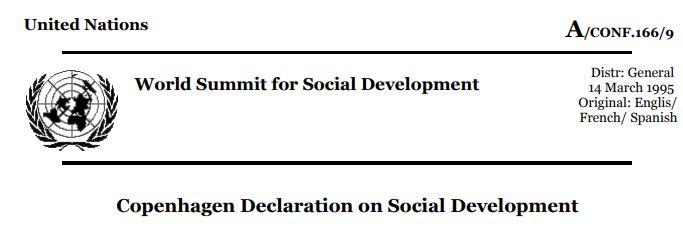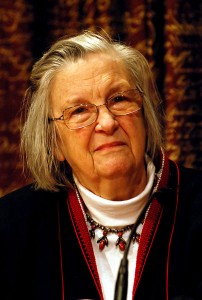30 Years Copenhagen Declaration – How to make progress at the World Summit for Social Development in Doha
 What is the difference between the Copenhagen Declaration on Social Development (1995), the Millennium Goals (2000), the Sustainable Development Goals (2015) and the UN Charter from 1945?
What is the difference between the Copenhagen Declaration on Social Development (1995), the Millennium Goals (2000), the Sustainable Development Goals (2015) and the UN Charter from 1945?
If we take the trouble to read all four declarations as a synopsis, we may come to the conclusion: nothing has changed in terms of the general goals such as social justice, preservation of natural resources and peaceful coexistence.
However, this means that the demands will be the same for the second World Summit for Social Development in Doha from November 4 to 6, 2025. More development aid. More cheap loans for Least Developed Countries. More commitment from the private sector. Better and fairer governance.
Same procedure or progress?
The positions in Doha are therefore to be expected. Poorer countries will ask richer countries for more support. The organizations responsible for development aid will warn against cuts. The main donors will proudly point to their successes.
So what could be different in Doha? Are there innovative approaches that are capable of promoting social development, at least in the LDCs, without a utopian redistribution of funds? Social engineering maybe?
As a scientific think tank, the Basel Institute of Commons and Economics has a duty to develop and test practicable and affordable forms of social engineering.
With the World Social Capital Monitor, the Institute now reaches around 2000 cities in 140 countries (including the 44 LDCs) and 53 languages. You can test this open evaluation of social goods, which are at the heart of all social development, yourself here without registering anonymous on any Mobile:
https://trustyourplace.com/?lang=en
Willingness to finance public goods as an indicator?
The Basel Institute was surprised to find that the willingness to contribute to the financing of public goods through taxes is also very high in LDCs, as is the willingness to invest in local cooperatives and SMEs.
Ultimately, the most stable and strongest societies are based on social inclusion and solidarity. These reduce the transaction costs for loans and investments, for poverty reduction and security.
Shared social values have been identified for decades as so-called social capital. The social researcher Elinor Ostrom (1933-2012) was even awarded the Nobel Prize for Economics for this.
For Doha, the Basel Institute of Commons and Economics will offer to present the social assets of all countries on the basis of the World Social Capital Monitor in order to create a basis for
decentralized and small-scale financing of communities in which national, international and regional funds can invest and which activate local resources.
Social capital could thus become a pioneering form of social engineering, in which even poor communities can assess and activate their local values such as helpfulness, friendliness and hospitality, completely without financial resources.
This would be a new impetus for the great declarations of the international community that does not require political and economic upheaval because each individual citizen can activate their social capital.
Kommentare deaktiviert für 30 Years Copenhagen Declaration – How to make progress at the World Summit for Social Development in Doha
admin am August 19th 2025 in Allgemein







